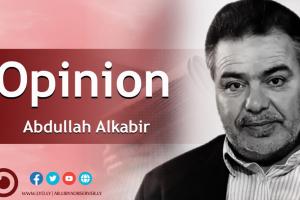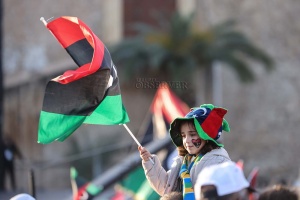By Abdullah Alkabir, political writer and commentator
Two initiatives worthy of attention

In a remarkable development, Fawzi al-Nuwairi, Deputy Speaker of the House of Representatives, has called, in a statement he signed, for urgent parliamentary elections to restore legitimacy and national unity, citing municipal elections as confirming the desire of Libyans to choose their representatives, and the ability of the national institutions to implement them.
Al-Nuwairi had not previously deviated from the will of the group controlling decisions in the House of Representatives headed by Aguila Saleh, which is a will in its final outcome to implement decisions of the Haftar family that holds power in the east of the country through security and military apparatuses, prisons and repression, save in this statement, which came under a prominent title; "A call to save the homeland," a title that carries a connotation that is not hidden from its writer's awareness of the dangerous collapse into which the homeland is sliding. Defending his call for urgent parliamentary elections, Al-Nuwairi went on to say; those elections "the only solution to restore legitimacy and end the division away from the legitimacy of the de facto situation that is imposed at the expense of the homeland and the citizen."
The statement was withdrawn from the House of Representatives platforms shortly after it was published, which some observers interpreted as a lack of consensus on it within the House of Representatives, or perhaps one of Haftar's sons intervened and ordered its withdrawal, because everyone knows that holding parliamentary elections is possible even in the prevailing conditions of division, and its success is highly guaranteed, and therefore it is a real threat to the de facto authorities, and a sound entry point for change according to what is available at the present time, and the insistence on linking it to the presidential elections is only for the purpose of thwarting it, and even the draft laws of the Bouznika Committee included an article that cancels the elections entirely if presidential elections fail.
The only argument of those opposing the parliamentary elections is that these elections failed to lead the country twice; the first time with the General National Congress and the second time with the current House of Representatives. This argument is absolutely invalid because both bodies were not elected as a parliament with full powers in a stable state with its institutions, but rather they are closer to the Constituent Assembly entrusted with issuing a permanent constitution, and enacting laws in case of necessity and in a way that leads to accelerating the end of the transitional phase. Both failed to complete the constitutional process, and the National Congress is credited with supervising the elections of the constitutional body and not interfering in its work, while the Speaker of the House of Representatives refused to hold the referendum, although the constitutional declaration obliges him to do so.
In a parallel proposal, Musa Al-Koni, Vice President of the Presidential Council for the South, called for the return of the system of regions and governorates, and the restoration of the administrative system of the country before September coup. The call was met with mixed reactions between acceptance, rejection, reservations, and acceptance with conditions, but the important thing is that the two initiatives stirred the stagnant waters for a while.
With all due respect to what Al-Koni has put forward, and the validity of the arguments he is putting forward, which are ensuring the distribution of powers between the regions, as well as ensuring justice in public services between the governorates, and thus reducing the pressure on the capital, as well as thwarting any calls for competition or control over it, this is of course agreed upon, as the geographical necessity and the weakness of transportation necessitate the adoption of a decentralized administrative system, because the central system is polarizing by nature, which has led to the population concentration inside and around the capital, while the population density in the outskirts and interiors decreases, to the point of threatening a slow and dangerous demographic change that threatens the unity of the population and puts pressure on the country’s limited resources and water scarcity. But before reaching the stage of discussions about the most appropriate administrative system, we must first think about the possible way to get rid of the de facto authorities, and how to eliminate family rule in the east of the country, and after that the way will be open for the people to choose their appropriate path that is acceptable to all components, and perhaps the shortest and available path is continuous popular pressure to return to the constitutional path, as the draft constitution has been ready for years, and the committee that drafted it was elected, we just need to get it back out of the drawers of the House of Representatives, dust it off, and put it to a referendum.
Disclaimer: The views and opinions expressed in this article are those of the writer, and do not necessarily reflect those of the Libya Observer



